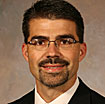Commentary on Psalm 138:1-8
In Hebrew, the name for the book of Psalms is tehillim, or “praises,” because from beginning to end, the God we confess is the subject of our praise.
Yet we must be clear, this unbridled praise is always grounded in gritty reality. There is no room for escapism or denial in these texts; the Psalter does not afford us this kind of luxury. What the psalms do provide, however, is a lens through which to see this world, and even more, a language that can lead us to full confession in the midst of it. Psalm 138 provides both.
This psalm is typically labeled as a psalm of thanksgiving, as the opening line suggests. Yet, the verb “to give thanks,” yadah, can also mean “to praise,” or better still, “to confess” in the sense of giving testimony. To thank God is always to confess something about this God; gratitude apart from testimony always falls short. The psalmist announces, “On the day I called, you answered me” (verse 3).
Although some thanksgiving psalms provide specific details regarding deliverance (for example, Psalm 118), others, such as this psalm, remain rather muted in their description, perhaps leaving us to wonder: What testimony is being offered here? The point, however, is not what God did; it is that God did. It is that God moved in response to the psalmist’s cry and God answered. The testimony is that the God who made the heavens and the earth (Psalm 115:15), the one who stands over all, heard a cry and answered. God’s willingness to answer serves as the ground of our hope. It is the very thing that strengthens our souls (verse 3); it is the very thing that makes possible the larger confession of this psalm.
These thanksgiving psalms always ask us to look backward and forward simultaneously. We glance to the past—to those moments when the faithfulness of God was on full display—so that we might stare into our present with great hope for the future. Such a perspective should not be underestimated, however; it is an act of a bold, and even at times defiant, faith.
We might be tempted to take the references to “gods” (verse 1a), “kings of the earth” (verse 4a), and “wrath of the enemies” (verse 7b) as antiquated categories from another day, but if we do, we empty this psalm of its power. In our proclamation, we need a “thick description” of those categories so that we might better understand how to transfer them to our world, how we might best overlay them onto the reality we experience. The psalmist declares that he will give thanks to God “with [his] whole heart” and that “before the gods” he will sing God’s praise (verse 1).
In the ancient world, there was a close association between the gods and nations; the unfolding of the world and the rise and fall of empires and peoples were all associated with the deities confessed by each nation. But in this psalm, as an act of defiant thanksgiving, the psalmist pushes back against the forces that lay claim to the world. Before these forces, the psalmist says he will pour out his life in declaring the steadfast love (hesed) of this God and this God’s enduring faithfulness. The reference to the gods and all other systems that lay claim to shaping this world are not ignored, but instead they are drowned out by thankful praise.
In verse 4, the psalmist announces that all the kings of the earth will one day join in confessing (yadah) this God. In the second stanza, the psalmist pushes back against the human systems and structures that assert authority in the world, declaring that one day, they too will sing of the “glory of the LORD” (verse 5b). Those who run the most powerful empires, those who presume the world is their plaything, will one day hear the words of God (verse 4) and see the works of God (verse 6) and understand that this God works in ways counter to our presumably well-ordered world. This is the God who regards the poor and lowly while keeping the arrogant at a distance (verse 6).
In the final section (verses 7–8), the psalm narrows considerably, moving from the threatening forces that are more global and structural to that which is more personal. The psalmist pushes back against those circumstances within his own experience that threaten to diminish life. In verse 7b, the psalmist references the “wrath of my enemies.” While this phrase might prompt us to consider the identity of those enemies, as with all good poetry, such particularity remains largely elusive.
A better place to start might be in verse 7a. The psalmist bemoans a life lived “in the midst of trouble.” The rendering of the Hebrew word sarah as “trouble” in the New Revised Standard Version and New International Version diminishes the image at work here. The Hebrew root of this word refers to “narrowness, constriction,” here understood as something that is “squeezing the life out of a person.” The psalmist refuses to allow such moments of seeming constriction and sheer distress to have the last word; redemption comes from the One who willingly “stretch[es] out [his] hand” (verse 7b).
The final plea in the psalm, “Do not forsake the work of your hands” (verse 8), may seem surprising, given all that has been confessed thus far. In the fifth book of the Psalter, “the work of your hands” frequently refers to God’s work of deliverance (for example, 107:22; 111:2; 118:17), and that seems to be in view here. The word “forsake” (rapah) might be better rendered as “abandon” or, more literally, as “let go.” Thus, the psalmist concludes with a plea for God not to abandon or walk away from his works of deliverance.
At first glance, this may seem counterintuitive, given his confession in verse 3 and his claims concerning the gods, kings, and enemies in the remainder of the psalm.
But in fact, it is not. The psalmist concludes with such a plea because he knows full well that in the midst of such a world, he cannot save himself. Deliverance can only come from this God—the One who answers the cries of his people.


August 23, 2020